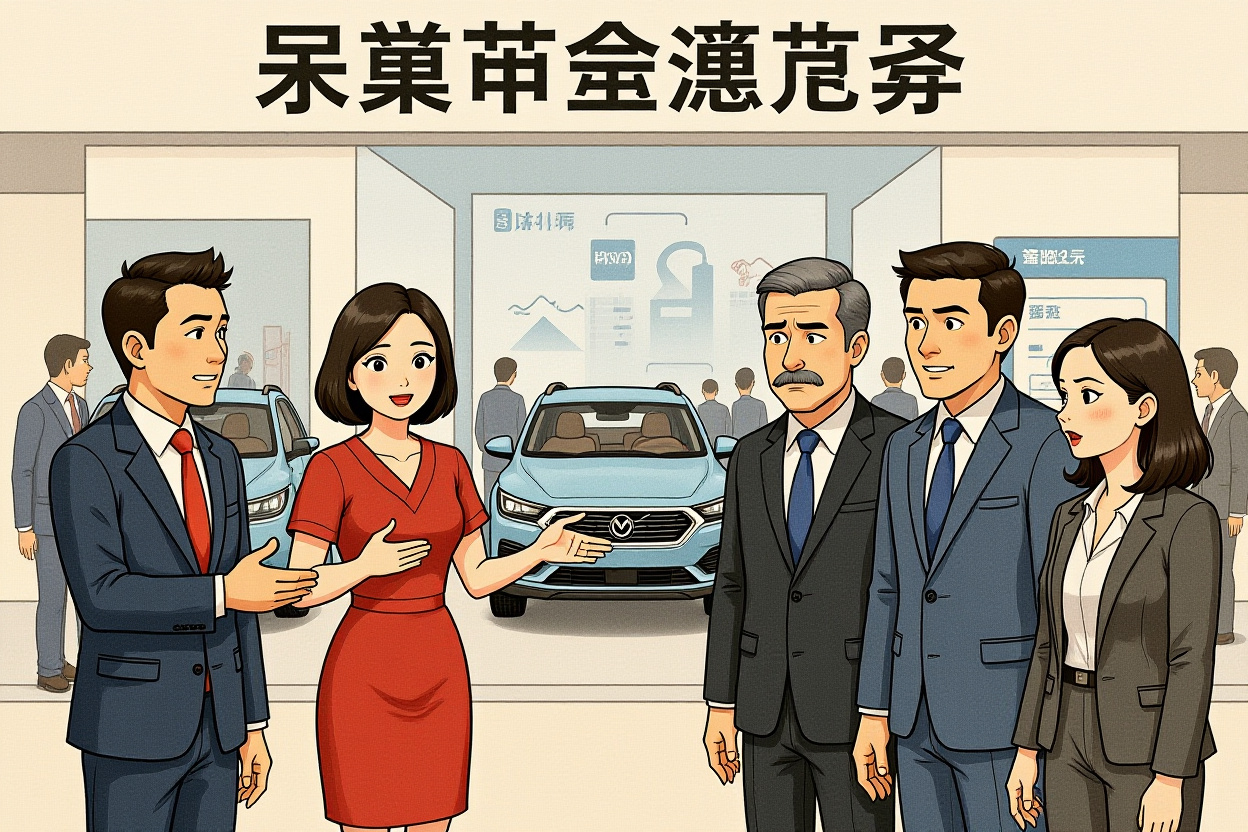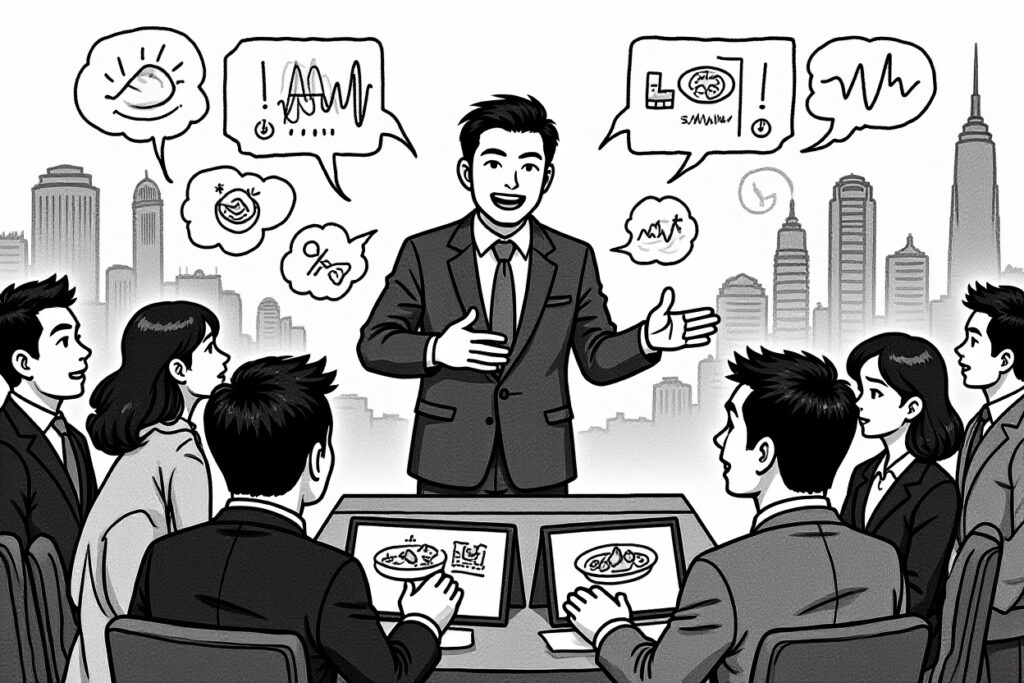The Munich Motor Show: A Battlefield of Titans
The Munich Motor Show, one of Europe’s premier automotive events, transformed into a high-stakes arena this year. Over 100 Chinese automakers descended upon the show, marking a nearly 50% increase from the previous edition. This surge turned the traditional German-dominated event into a fierce Sino-German rivalry. Against the backdrop of Munich’s architectural elegance and bustling crowds, the atmosphere was charged with competitive energy.
Inside the exhibition halls, the contrast was stark. While German automakers showcased their legacy and innovations, Chinese brands displayed aggressive expansion plans and cutting-edge technology. The event underscored a pivotal moment in the global automotive industry, where electric vehicles (EVs) and smart technology are redefining market dynamics.
Rising Chinese Influence
Chinese automakers, once perceived as imitators, are now setting the pace. Companies like BYD announced ambitious strategies, such as their ‘Thousand Stores Plan,’ aiming to establish over 1,000 dealerships across 32 European countries by 2025. This full-scale offensive into the heart of Europe’s automotive industry signals a dramatic shift in global power structures.
BBA Under Pressure: Sales Slump and Strategic Shifts
Mercedes-Benz, BMW, and Audi (BBA)—long revered as symbols of luxury and engineering excellence—are facing unprecedented challenges. In their key market, China, sales have plummeted. During the first half of the year, Mercedes-Benz sales dropped by 14%, Audi by 10.2%, and collectively, BBA saw a decline of nearly 300,000 units. This downturn has severely impacted profitability, with Mercedes-Benz reporting a 55.8% plunge in net profit.
The reasons behind this shift are multifaceted. Chinese consumers are increasingly turning to domestic EV brands, which offer high performance, advanced features, and aggressive pricing. Models like the BYD Han EV and Nio ET5 start at around $30,000, undercutting traditional luxury sedans while delivering superior technology and efficiency.
Youth Market Capture
Younger demographics, particularly those born in the 1990s and 2000s, are driving this change. Over 64% of BYD Han owners belong to this age group, reflecting a broader trend of brand loyalty shifting from legacy automakers to innovative newcomers.
Electric Revolution: Strategies and Counterattacks
In response to the rising threat, BBA has recalibrated its strategies. Initially committed to full electrification, these giants are now adopting a more pragmatic approach, emphasizing a hybrid transition and accelerating their smart technology initiatives.
For instance, Audi has abandoned its 2033 deadline for phasing out internal combustion engines, while Mercedes-Benz has adjusted its 2030 target to having up to 50% of sales come from hybrid and electric models. This strategic pivot highlights the intense pressure exerted by Chinese automakers.
Product Innovations
At the Munich show, German brands unveiled their counteroffensive. BMW introduced the Neue Klasse platform, with the iX3 set to hit European markets by 2026. Mercedes-Benz showcased the all-electric GLC EV, featuring a massive 39.1-inch Hyperscreen display. Volkswagen presented the ID.CROSS concept, an affordable compact SUV slated for release in 2026.
Despite these efforts, the road ahead is fraught with challenges. Tariff disputes, regulatory pressures, and internal disagreements over policies like the EU’s 2035 combustion engine ban add layers of complexity to BBA’s comeback plans.
Global Market Implications
The rivalry extends beyond product showcases. Chinese automakers are not only competing on price and technology but also reshaping global supply chains and trade dynamics. According to Reuters, executives like Oliver Blume, CEO of Volkswagen and Porsche, have criticized asymmetric trade agreements that impose tariffs on EU car imports while exempting U.S. industrial goods.
Meanwhile, Chinese brands are rapidly gaining market share in Europe. Data shows that Chinese automakers captured 5.1% of the European market in the first half of the year, just behind Mercedes-Benz’s 5.2%. This growth trajectory suggests that the balance of power in the automotive world is shifting irreversibly.
Regional Responses
European policymakers and industry leaders are sounding alarms. German media has warned that without innovation, iconic brands like Volkswagen risk becoming relics. The sentiment was echoed at the show, where executives admitted that Chinese EVs are a generation ahead, urging Europe to accelerate its catch-up efforts.
The Future of Automotive Leadership
The Munich Motor Show has crystallized a new reality: the era of unchallenged German dominance is over. Chinese automakers are now formidable players, capable of dictating trends and forcing legacy brands to adapt or decline.
As the industry navigates this transition, key questions remain. Will BBA’s hybrid strategy and focus on luxury sustain their relevance? Can Chinese brands overcome regulatory hurdles and establish lasting trust in international markets? The answers will shape the next chapter of the automotive revolution.
For consumers, this competition promises more choices, better technology, and lower prices. For automakers, it heralds a Darwinian struggle where only the most agile and innovative will thrive.
Explore the latest developments in electric vehicles and market trends to stay informed about this rapidly evolving landscape. The future of mobility is being written now—don’t miss the ride.




